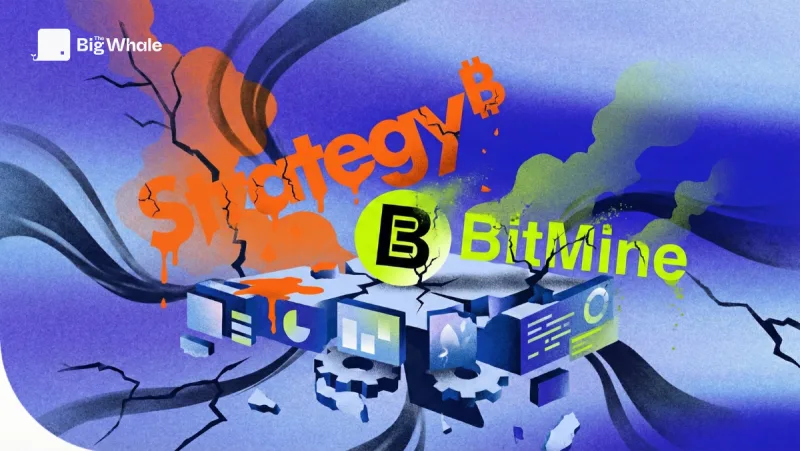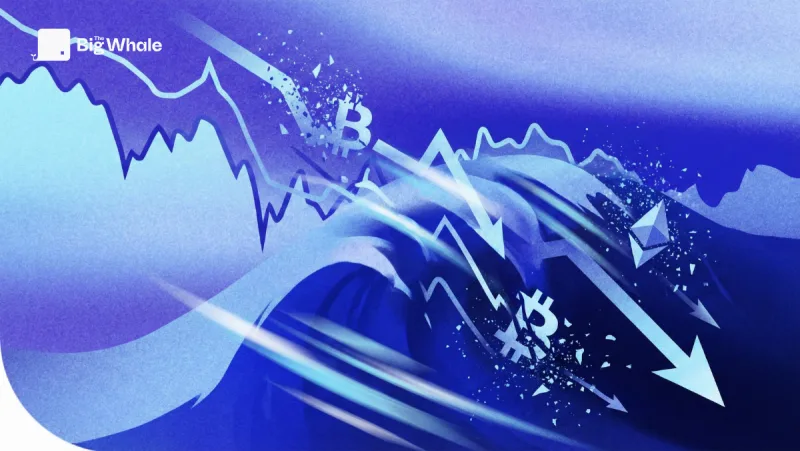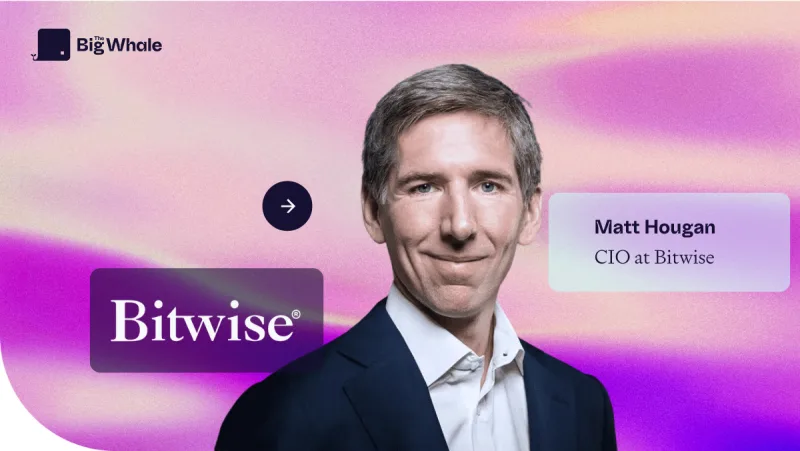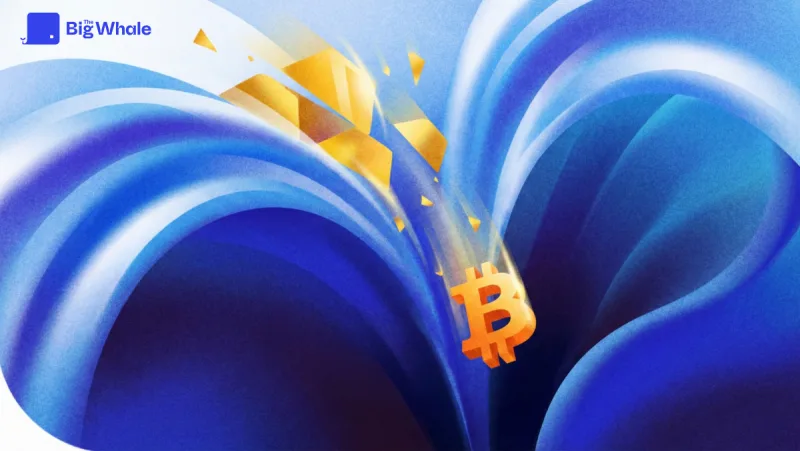TBW - World Liberty Financial (WLFI): What is the value of this crypto project backed by Donald Trump?

Introduction
World Liberty Financial is a project launched at the end of 2024 that uses the image of Donald Trump. Its ambition is to offer an online platform for borrowing and earning returns from cryptocurrencies. Although many aspects remain unclear and the platform is not yet operational, its designers present it as a service offering the general public simplified access to decentralised finance (DeFi) and its returns. A token is offered to its investors: the WLFI.
Origine
Behind the media facade, World Liberty Financial hides a complex structure. The project was born within the Witkoff Group, a giant in American real estate, under the impetus of Steven Witkoff and his sons.
Chase Herro and Zak Folkman are also among the founders. Their entrepreneurial backgrounds include The Nexus Group, which was the subject of numerous lawsuits, and Subify, a company that was quickly dissolved.
The backgrounds of these entrepreneurs are littered with controversial projects. Herro, who refers to himself as the "dirt bag of Internet", has made a name for himself with his get-rich-quick schemes and claims about fortunes supposedly amassed via his companies.
The Trump family, with its three sons, is essentially stepping in as ambassadors for the project, with Donald Trump taking on the role of "Chief Crypto Lawyer". There is no doubt about this support as they are all communicating extensively around the project.
Rich Teo, founder of Paxos, is contributing his expertise to the team. Paxos has distinguished itself as a white-label stablecoin issuer, notably supplying PayPal's solution and, previously, Binance's before the US regulator intervened.
The technical team relies on Corey Caplan, Ethereum developer and creator of the Dolomite DEX, as well as Octavian Lojnita and Bogdan Purnavel, two Web3 developers renowned for their "BTC Lottery" project.

The project also has a number of advisers from recognised Web3 projects and VCs, including Polychain Capital, Scroll (with its CEO Sandy Peng) and Tomo. This expertise can help this primarily Web2-focused project integrate into the Web3 ecosystem, which operates according to distinct codes.
The World Liberty Financial app appears to be a fork of the Dough Finance project, which suffered a $1.8m hack in July 2024 due to a flaw in its smart contract.
Despite the removal of many traces, the links between Dough Finance and founders Chase Herro, Zack Folkman, as well as Octavian Lojnita and Bogdan Purnavel are proven.
The project is identical: a decentralised finance application built on Aave. The only difference is that it now has the backing of the Trump family and audits by a number of leading players (PeckShield in particular).
>> Read also - Compound, Aave, Morpho: how lending reinvents itself into DeFi
Disastrous tokenomics for investors
The terms stipulate that the Trump family is not directly involved in the project - they only act as ambassadors, which protects them legally in the event of problems.
However, Donald Trump can receive up to 22.4 billion tokens out of the total 100 billion, as well as 75% of the protocol's net revenues.
For its part, AMG, the group owned by founders Chase and Zachary, can get 7.5 billion tokens and 25% of the protocol's net revenues, with the option of selling 50% of these amounts to WC Digital Fi, an entity linked to the Witkoff family.

The WLFI is currently a non-transferable governance token, although it may become so in the future depending on community decisions. Holders of the token will not, however, receive any redistribution of revenue.
This lack of utility and transferability probably explains why only 5 billion tokens (out of the 20 available for sale) were sold in the first few weeks of launch (from 15 October 2024).
But the craze surrounding Donald Trump's memecoin (TRUMP), launched to everyone's surprise on 18 January, enabled all the remaining WLFI tokens to be sold quickly.
A symbol of TradFi - DeFi convergence?
Despite the criticism and its image as a TradFi project, World Liberty Financial has managed to surround itself with the best DeFi players: Aave to carry out its loans, Ethena (read our analysis) to include sUSDe in the protocol, and Chainlink (read our analysis) for financial market data and asset interoperability.
World Liberty Financial could become the first representative of traditional projects migrating to DeFi, retaining the necessary control while benefiting from the advantages of this technology. Even if these projects do not always align with certain blockchain philosophies, the technology remains open to all.
However, Dough Finance's past represents a major risk for the ecosystem. A potential hack of a platform backed by the President of the United States could tarnish DeFi's image and slow its adoption.
A closely watched investment portfolio
Bolstered by a significant financial reserve from its crypto fundraising, World Liberty Financial has adopted an aggressive investment strategy. Thanks to the transparency of blockchain, its investments can be tracked in real time and are under particular scrutiny (tracker available here), with some seeing it as an implicit endorsement of Donald Trump in these assets.
The project currently holds $233m of ETH and STETH (its liquid version staked in Lido), $65m of WBTC (a version of Bitcoin on Ethereum), as well as other assets such as LINK, TRX and AAVE.
The data shows that these funds were acquired after 18 January 2025, following the launch of the TRUMP memecoin, a period when the WLFI project saw renewed investor interest.
World Liberty Financial shows a strong belief in Ethereum, not only by developing on this blockchain, but also by focusing the majority of its investments on it. Even its exposure to Bitcoin is through tokenised versions on Ethereum.
Caution: it would be risky to claim that World Liberty Financial's investment choices directly reflect the convictions of Donald Trump and his administration. Nevertheless, these choices give a certain colouring to the tokens acquired by the project.
Conflict of interest?
Donald Trump's inauguration raises questions about his political neutrality in the regulation of cryptocurrencies, particularly with regard to the World Liberty Financial project.
This is tricky for two reasons: it not only calls into question his role in the project, but could also weaken his position on regulation - with his links to the project potentially backfiring if he takes too pro-cryptocurrency stance.
Donald Trump's position seems all the more ambiguous given that he is the main beneficiary of the protocol's tokens and revenues, while maintaining a posture that allows him to disengage at any time if he runs into trouble.
Conclusion
World Liberty Financial is paving the way for institutional adoption of decentralised finance, not least thanks to its highly influential political and institutional ambassadors.
The project's impact on the crypto ecosystem could be considerable, both positively and negatively. The inauguration of Donald J. Trump should clarify his vision of regulation and, consequently, the future direction of the project.
A change in SEC regulations could enable the project to significantly increase its fundraising and make its token tradable on the markets.
As a major player in the industry, World Liberty Financial deserves special attention. Its success could accelerate the mass adoption of blockchain technology. To put things into perspective, if Aave were a traditional bank, it would rank 63rd in the world. The WLFI project could therefore bolster the legitimacy of Aave and other players in the sector.



